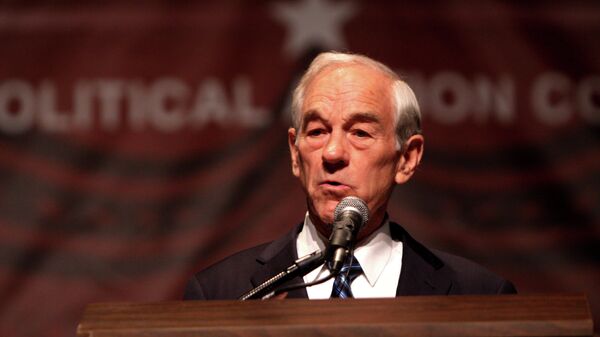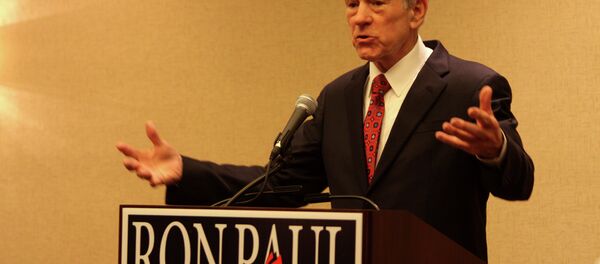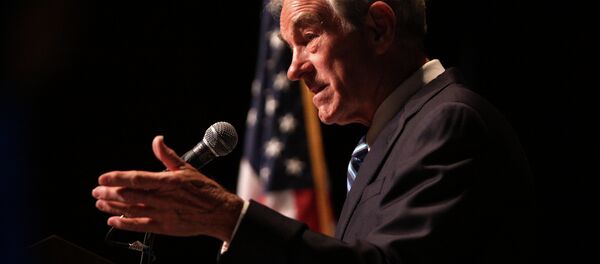In a column posted to his website on Sunday, Paul says the plan seems to be paying off for contractors and think tanks, as governments around the world are investing more and more into their military.
"The new 'threats' that are being hyped bring big profits to military contractors and the network of think tanks they pay to produce pro-war propaganda," he writes.
The former presidential candidate called out Germany, which announced last week that it would purchase 100 "Leopard" tanks. The purchase bucks a trend for a country that had greatly reduced its tank inventory since the end of the Cold War, but now sees a potential foe in Russia.
"Never mind that Russia has neither invaded nor threatened any country in the region, much less a NATO member country," Paul writes.
Paul also noted that since 2013, the Pentagon has awarded contracts worth more than $850 million for work related to Cheyenne Mountain, the Cold War-era nuclear bunker under a mountain in Colorado. Last month, the Pentagon awarded American defense firm Raytheon a $700-million contract to install new equipment inside the bunker.
"Raytheon is a major financial sponsor of think tanks like the Institute for the Study of War, which continuously churn out pro-war propaganda," Paul writes. "I am sure these big contracts are a good return on that investment."
NATO – which Paul believes "should have been shut down after the Cold War ended" – also will be the recipient of an upgrade. The Alliance commissioned a new headquarters building in Brussels, Belgium, in 2010.
On top of resembling a "hideous claw," according to Paul, the final cost will exceed $1 billion – more than twice what was originally budgeted.
"What a boondoggle!" Paul fumes. “Is it any surprise that NATO bureaucrats and generals continuously try to terrify us with tales of the new Russian threat? They need to justify their expansion plans!"
And while it may seem that countries like Russia, Iran and Cuba are adversaries, the real enemy, Paul writes, is the taxpayer, middle class and the productive sectors of the economy, which suffer the most from runaway military spending.
— Peace & Justice Cntr (@PJCVermont) April 13, 2015
Paul dismisses as a “dangerous myth” the belief that military spending benefits the economy. Instead, it benefits a "thin layer of well-connected and well-paid elites," and diverts scarce resources from the public that most needs them and uses them to manufacture war machines.
"The elites are terrified that peace may finally break out, which will be bad for their profits," Paul writes. "That is why they are trying to scuttle the Iran deal, nix the Cuba thaw, and drum up a new ‘Red Scare’ coming from Moscow. We must not be fooled into believing their lies."




